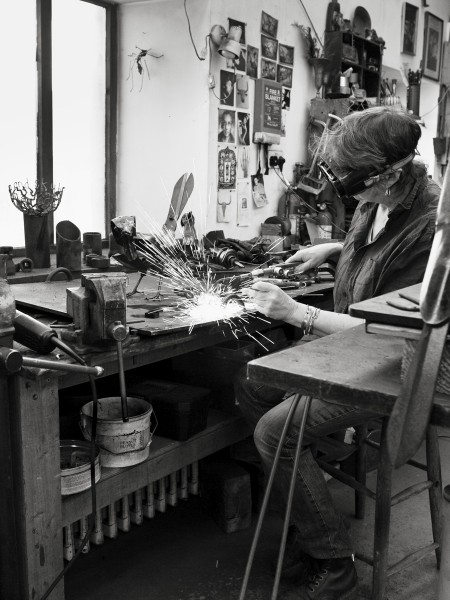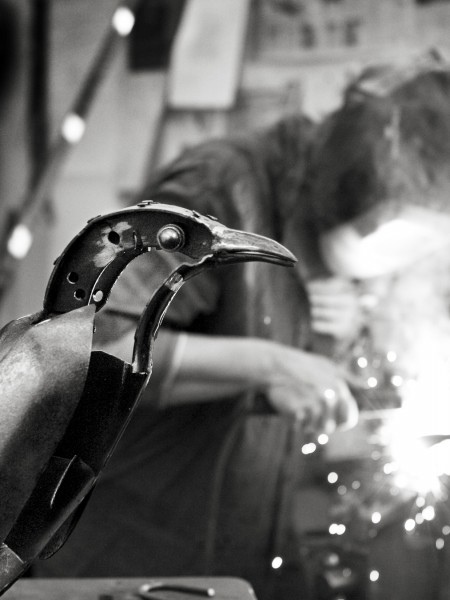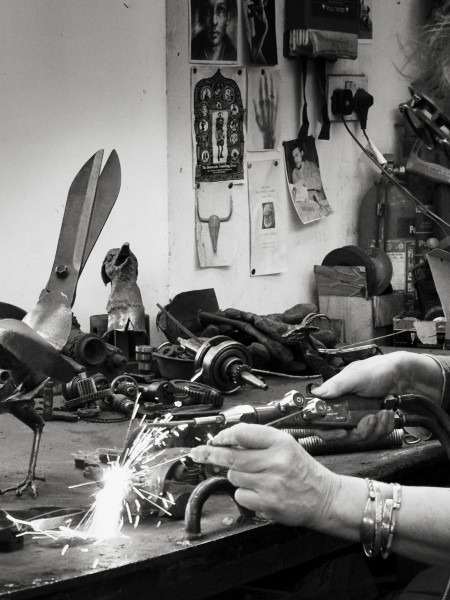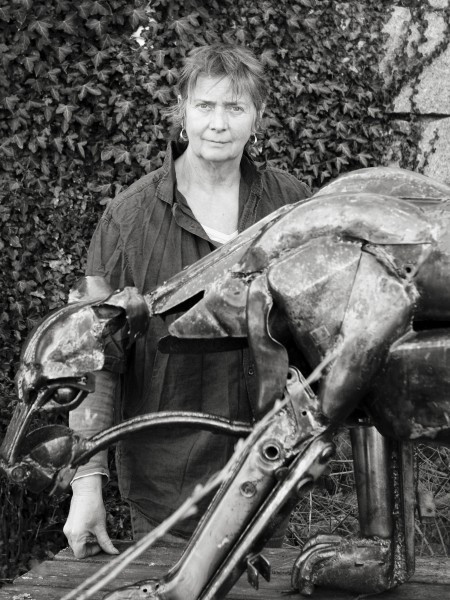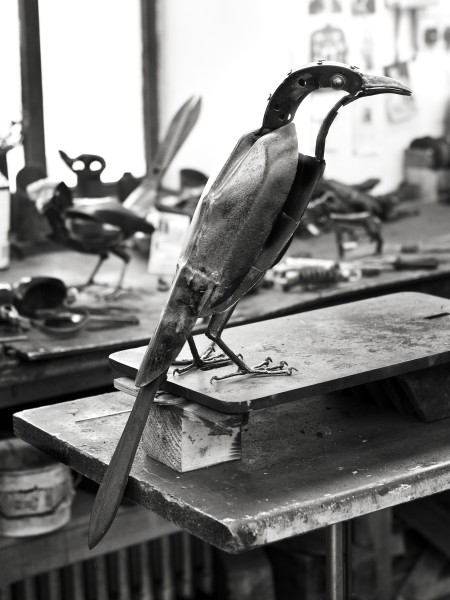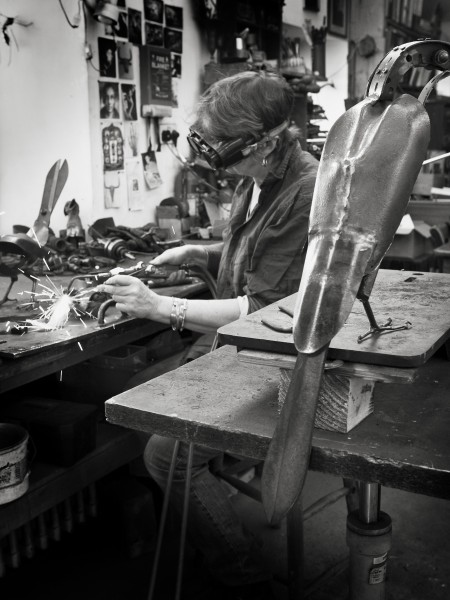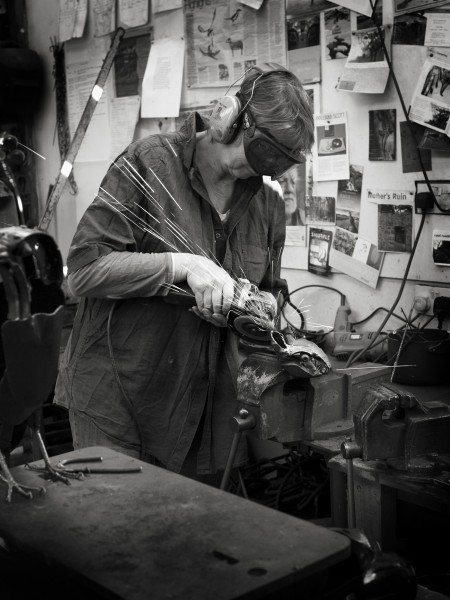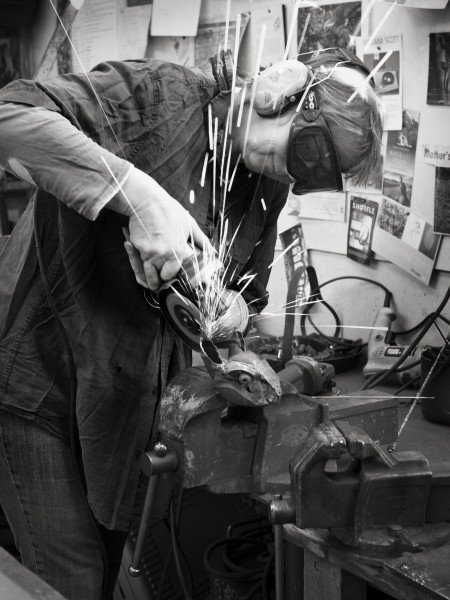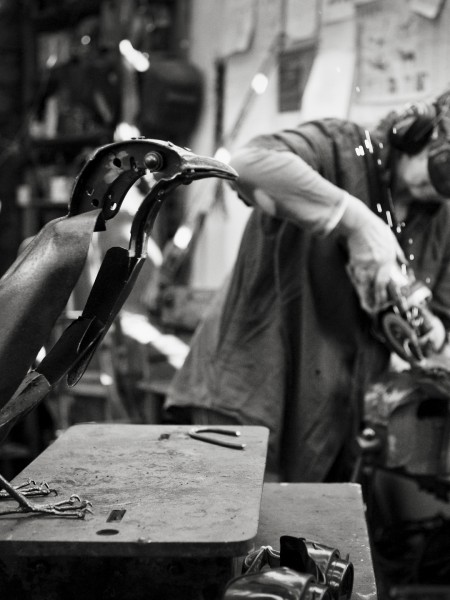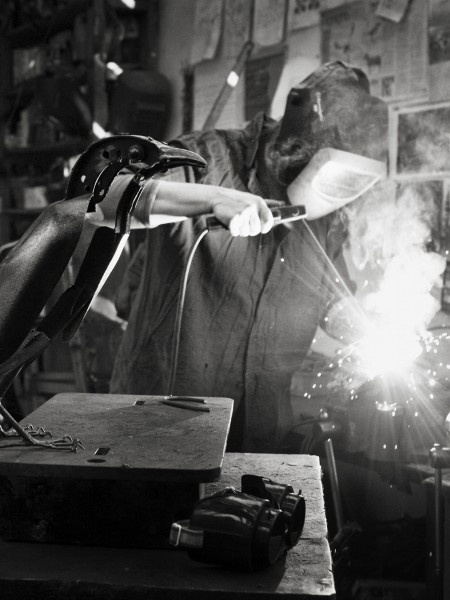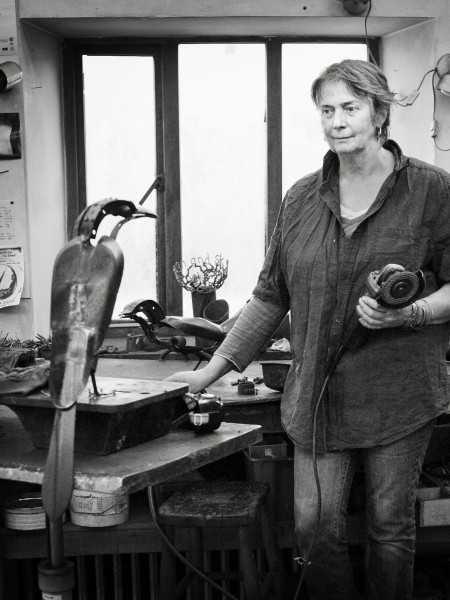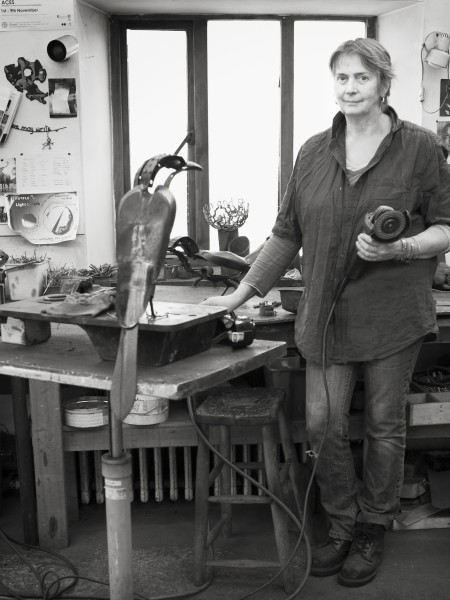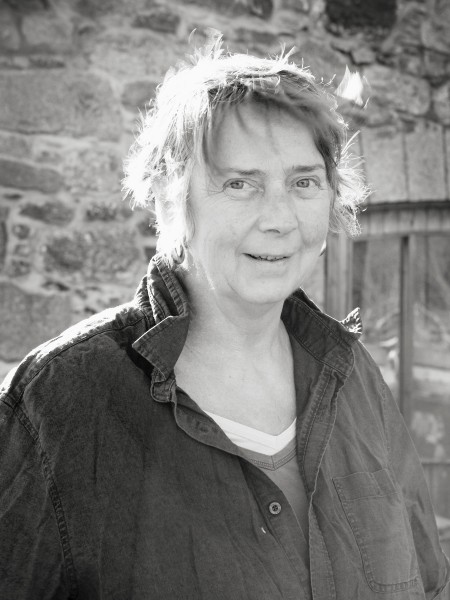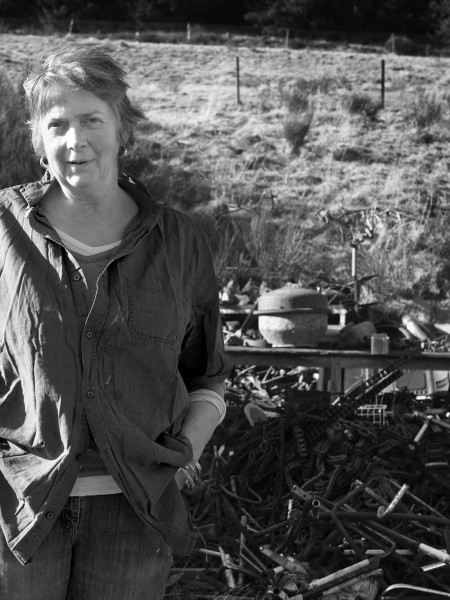Q. What is your principle professional skill?
Could you tell us a little about it?
A. I’m a sculptor in metal. I have two skills in one really; one skill as an artist and one skill as a metal worker. The total of what I do is a combination of both.
Q. How long have you been practising your skill?
A. Since leaving Art College, so that’s thirty six years.
Q. How did you learn your skill? How long did it take?
A. That’s a tricky one for an artist to answer. Is it about welding or art? I went to art school to develop art skills and I was introduced to welding. The rest I’ve learnt as I’ve gone along all the rest of my life.
When I left school I was told that the apprenticeship to be a professional artist is at least sixteen years long and I would agree with that.
Q. Are there any other people in the region doing what you do?
A. No, there are other sculptors but no one who does what I do.
Q. How important do you think your skill is for the region?
A. I think it is important because I’m well known. It doesn’t do the region any harm to have a few established, professional artists.
Q. How has your situation evolved over the last few decades?
A. I’ve become more and more confident and developed a reputation and I suppose I have earned a proper living for quite a number of years now but it took long time to happen.
Earning better money means that you can have better facilities, a better studio, better equipment and more time. Being more well-known means you exhibit with better galleries and get more commissions
Q. What are the main differences between now and when you started?
A. When I started I was optimistic that being an artist could be my sole occupation but as that is very rare I wasn’t convinced that it would be. I wasn’t sure and I had to take lots of risks to get to the point where I became certain that that was how I was going to spend my life.
Q. How do you anticipate the future to be for your skill?
A. Sore.
I can’t imagine that I will ever do anything else so it would be nice to think that I could tackle big project and to be able to think that I might have help. Retirement is not an option, not that I would ever want to stop doing what I do.
Q. How important do you think it is to pass the skill on to the next generation?
A. I feel it is my duty to encourage young people with an artistic commitment and passion to become artists but no artist can pass on their particular artist skill because the nature of being an artist is unique to each artist.
I could say that I have taught a few young people to weld but, more importantly, I have encouraged more to learn how to draw.
Q. Would you be prepared to train someone?
A. That’s a difficult one. I’d be prepared to have an input if someone was at the stage of knowing what they wanted to do. The danger would be creating a clone of yourself.
Q. Do you think that society should feel obliged to find a way of preserving such skills?
A. Absolutely, can you imagine a world without skills?
Q. Does having a skill change the way you see the world.
A. Being an artist changes the way I see the world. I work with metal because I have a passion for it so that does make me appreciate metal in all its guises, but I think being an artist is about having sensitivity and a perception for whatever you are surrounded by, so yes the world can seem different if you are always aware of what’s around you.
Q. What kind of rewards do you get from your skill, monetary and/or otherwise?
A. Well, I’m now lucky enough to spend all day every day doing the thing that means so much to me and I earn enough money to have a good life.
Q. What impact has broadband and the internet had on your work?
A. It has nearly sent me round the bend.
The only good thing about it for me is that I can send images of my work more quickly and people can see what I do via the Internet but I would happily go back to a time before it all existed
For all the positive outcomes I have just as many or more time wasters contacting me.
It makes admin time even longer..
Q. What, if anything, could be done to help to preserve your skills and support your profession?
A. I think, whether through education or government policy, the value of art must not be lost.
I think it would be dangerous for society to see art as an add-on extra. It is essential to people’s understanding of themselves and the world.
